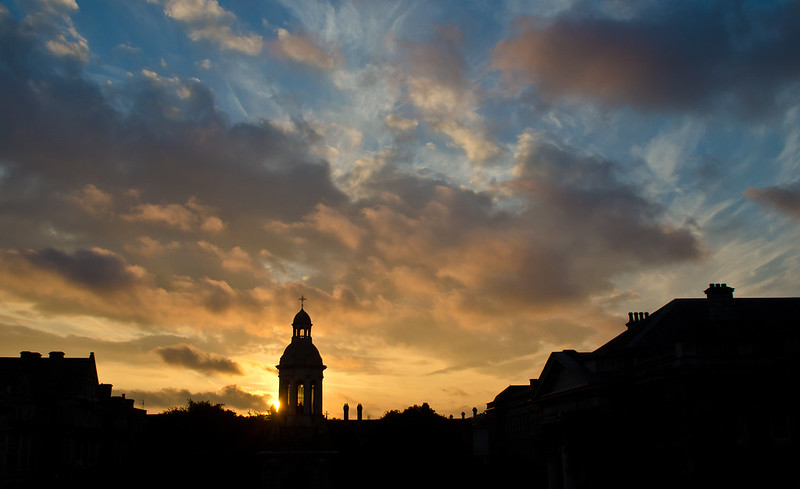As much as you may try to deny it to your friends at home, a lot of Trinity’s allure is in its reputation. For an outsider looking in, Trinity has a lot of positive attributes. Yet what many fail to mention – and what no annual undergraduate prospectus boasts about – is a particular faction of life in College that few outsiders are aware of: the perpetual drama between College administration and its students.
On this week’s episode of the Trinity soap opera we have unwittingly found ourselves starring in a triumvirate of clashing heads between the Scholars, College and the legions of online Twitter soldiers.
For Dublin-based Scholars, the issue is College’s recent decision to no longer prioritise these students for first-round accommodation offers.
It is an undeniable fact that the guarantee of free on-campus accommodation is one of the most alluring things about becoming a Scholar. It is the driving force for many hopeful applicants and is most certainly a rewarding light at the end of the tunnel of this vexatious process.
For College, however, its decision to limit accessibility to on-campus accommodation is simply a necessary evil. To re-establish a safe learning environment in a post-pandemic world, there are certain sacrifices that need to be made, and, frankly, this is not one of the more perplexing ones.
Where the college has once again faltered though, is through their series of unintelligible announcements on the decision.
Initially, many students understood the primary announcement made by College to mean that no Dublin-based Scholars would be offered places in first-round offers. Unsurprisingly, this incited outrage amongst many Scholars, who deemed this decision to be in direct contrast with Trinity’s statutes.
Now, it seems the College has instead clarified their intentions to veer toward “voluntary forfeiture of the privilege of free accommodation in the interest of the overall community”.
While at first, this may appear to be a slightly better alternative to the idea originally posed, it is unlikely that students will forfeit the opportunity to take-up on their promise of on-campus accommodation, despite College’s concerns.
This is where online discourse has come into play in our Greek tragedy. Many have voiced their opinions on the matter, yet little sympathy for the Scholars has permeated throughout the debate.
To most, given the more serious nature of the decision, Dublin Scholars must accept their fate this time. In a time in which accommodation is a scarce commodity for all students, for those who live within a commutable distance from the college, it is understable – if not strictly vital – that they would not be a priority.
Although for some students the Schols exams are a pillar of their college experience, many view them as an archaic and classist mode of gauging student’s abilities. As a college often more allured by the idea of tradition rather than modernity, the Schols exams are a bone of contention for many, and a system of means-testing is more favourable in the online commentariat.
In the end, no one is triumphant in this tale of woe and dramatics. Students undeniably have put their heart and soul into attaining the title of a Scholar, and to be asked to forfeit some of the benefits of such an achievement is a tough task. Scholars must choose between going against widespread public outrage by accepting their accommodation offer, or else they must cede the very opportunity that was surely an incentive in taking the exams in the first place.
For the College, they have found themselves caught between a rock and a hard place, in an attempt to secure the safety of incoming residents, while also maintaining a long-held, and well-valued tradition.
This may only be the first in a long line of contentions the College will face in the upcoming months as they try to adjust to unprecedented times. Although to an outsider, the suggestion that students would forfeit their places in favour of those who may need it more is perhaps a logical one, the reality may be that few are willing to accept this fate.
For Trinity as always, with great stature, comes great controversy.







